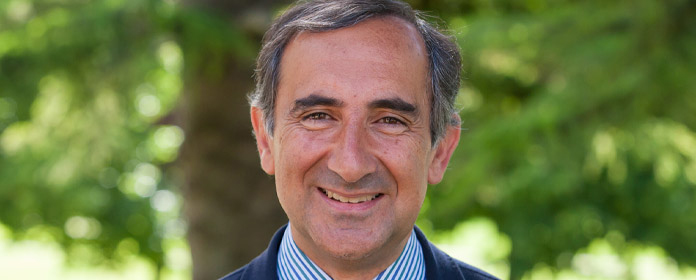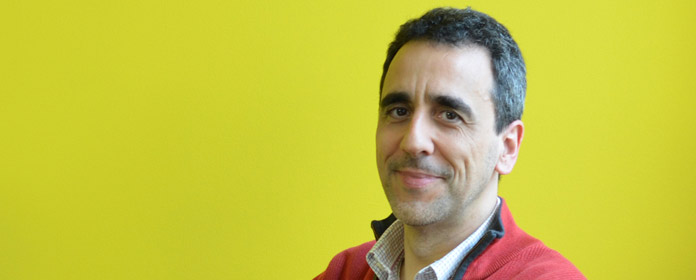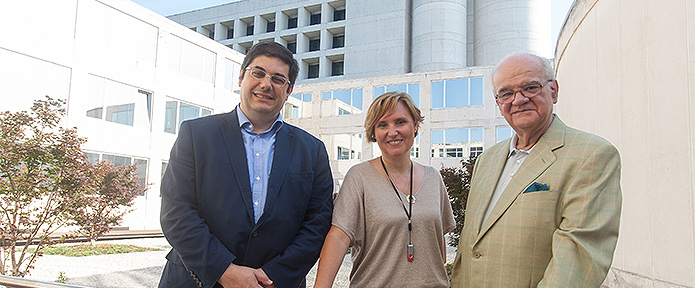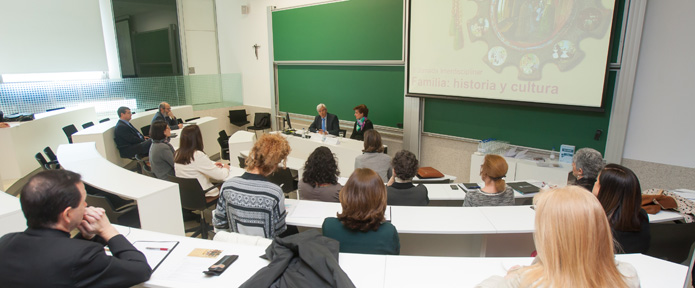European Day of Solidarity and Cooperation between Generations: tackling the pandemic without neglecting the elderly and children
Mariano Crespo, philosopher at Institute for Culture and Society of the University of Navarra, emphasizes the importance of trust for the cohesion of society, especially in crisis situations such as the current one.
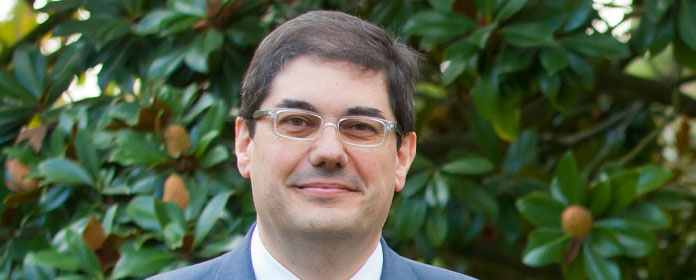
PHOTO: Manuel Castells
Mariano Crespo holds a PhD from Philosophy and is currently doing research at project ' 'Emotional culture and identity' of the Institute for Culture and Society (ICS) of the University of Navarra. In most of his works he has addressed questions of ethics and theory of knowledge from a phenomenological perspective. He has also recently collaborated in a line of research of the ICS on the moral dimension of social bonds and the way in which these intervene in the configuration of identity staff and collective.
On the European Day of Solidarity and Cooperation between Generations, marked this year by the global pandemic of Covid-19, he reflects on aspects such as gratitude towards the generations that have preceded us, responsibility towards the youngest and trust as the basis of social systems.
Older people, people of working age and children have all been affected by the pandemic, albeit in very different ways. To what extent is solidarity between generations essential to deal with this crisis?
During these days, we often ask ourselves what the pandemic and the circumstances associated with it (confinement, restrictions, etc.) are teaching us. This entails a healthy exercise of reflection staff and, dare I say it, of self-examination. In this sense, I think we have to overcome a polarization of approaches. The human being is not an isolated individual, but is inserted in a vital context in which the past and the future play a central role. On the one hand, we are what we are thanks to the efforts of the generations that have preceded us and, on the other, we have an important responsibility towards the younger generations.
Someone recently said that the moral quality of a society is measured by the way it treats its elders and children. I think this is very true. Our parents' and grandparents' generations have not had it easy. Everything suggests that our children will not have it particularly easy either. We cannot, therefore, act as if there was no before or after us.
This crisis has sometimes been framed in terms of winners and losers: saving the elderly or saving the working-age generation. What's wrong?
This subject of approaches highlights the polarization I was referring to. The easiest thing to do is to frame things as if there are only two options to choose from. However, the reality is much more complex. Certainly, there are actions that are always bad (as there are others that are always good), but circumstances also play a very important role in the moral evaluation of actions. Personally, I am wary of Manichean approaches in which in order for some to win, others must lose. I am sure that healthcare professionals - to whom we owe so much in these circumstances - do everything they can to help their patients beyond these alternatives. Productivity and efficiency are important, but not the most important thing.
Individualism is a characteristic feature of our societies. How is it possible for citizens to stop being guided by individual interest (open my business, go jogging with my children, travel...) and prioritize the common interest (avoid the collapse of the system, prevent deaths...)?
Answering this question is not easy. On the one hand, it means overcoming the polarization to which I referred and being aware that we are what we are in a given social context in which those who have preceded us and those who will follow us play a certain role. We cannot, therefore, forget either one or the other. On the other hand, when I am asked a question like this, I usually remember a very old version of it: "I see the best and I approve of it, but I follow the worst". Put in more modern terms and referring to our current status : it is absolutely necessary to understand that the common good is much more than the mere sum of individual goods, that our individual actions have social repercussions, that staying at home benefits society as a whole, etc. However, I am afraid that this "theoretical" understanding, although a necessary condition, is not enough. It is necessary that our heart, our affectivity, follows what reason dictates.
An emotion core topic to unite generations and society in general is trust. Why is it even more important in times of crisis like this?
Trust is at the basis of various social systems to the extent that its members act agreement with certain future behaviors they expect from other members of their social system. Trust has even been referred to as the "cement" that holds society together or as a "basic fact of social life". In this sense, it is difficult to imagine a life in society dominated by absolute distrust. As Luhmann graphically points out, a complete absence of trust would prevent human beings from getting up in the morning. Now, trust not only illustrates sociality (the relationship between self and others), but also highlights the importance of relationality in the construction of identity staff. Certainly, by being united to another in trust, we make ourselves vulnerable to the extent that we expose ourselves to having our trust betrayed. The one who trusts assumes this risk and by bonding with others in trust, opens himself to social existence. On the contrary, the person who continually suspects others, who continually thinks that he may be betrayed and who, therefore, does not assume the vulnerability to which he exposes himself by trusting others, "contracts" on himself, isolates himself from the social sphere. I think that in a status crisis like the current one this is especially important.

